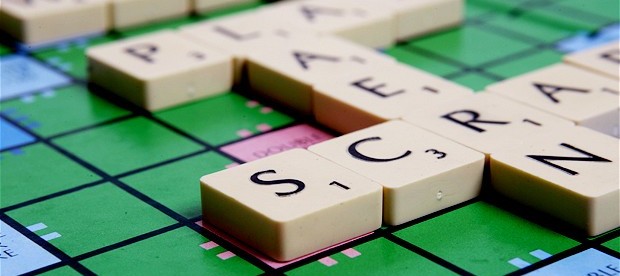The Time Championship Scrabble Almost Led to a Strip Search

The name Edward Martin is hardly a household one. At the pinnacle of his career — at least, the part of his career relevant to this story — he competed in his hobby’s World Championships three times. In 2005, he finished 24th, a result he’d never match. At the next event two years later, he finished 54th, and then, after failing or declining to compete in 2009, returned to finish 51st in 2011. And the best part? He got to keep his clothes on the entire time — although that, for a moment, may have been in question.
That’s the life of a world-class Scrabble player.
Scrabble — yes, the board game, to be clear here — was created in 1938 by a guy named Alfred Butts. Butts’ game quickly developed into being a local favorite, and by the early 1950s a major game manufacturer discovered it. Shortly thereafter, Scrabble spread throughout the country and, ultimately, the world. In 1991, Mattel, the game’s manufacturer at the time (it is now manufactured by Hasbro in the U.S. and Canada and Mattel everywhere else) hosted the inaugural World Scrabble Championship in London. Four dozen players from around the world competed for $19,000 in prize money, with the eventual champion taking $10,000. (The runner up that year, as Wikipedia notes, tried to play the non-word “SMAIL” when he could have played the actual-word “CLAIMS,” which likely cost him the title.)
Despite the relatively small prize pool, interest in the World Scrabble Championship has increased over the years, and in 2011, the aforementioned Edward Martin was one of 106 people in Warsaw, each after a $20,000 first prize. A man named Nigel Richards won his second world title that year (he also won in 2007 and would take the 2013 crown, too), playing the word “OMNIFIED” for the win in the finals, but Martin was unfortunately the lead story. Slate explains:
In Round 7 of the 34-game event, Edward Martin, an IT consultant from London, was playing Chollapat Itthi-Aree, a math instructor from Bangkok. Near the end of the game, Martin realized a tile was missing; instead of two tiles in the bag there was only one. How did he know this? Competitive Scrabble players “track” the 98 letters and two blanks as they are played. That way, when the bag is empty, each player will, if he has tracked correctly, know what tiles his opponent holds. This is when Scrabble turns from a game of imperfect information into one of perfect information; a player can map out the endgame with full knowledge of his opponent’s possible gambits.
[ . . . ]
The director had Martin and Chollapat search for the tile—in the bag, under the board, on the floor, on their chairs—but they turned up nothing. The director then ruled that, since the players thought the game had begun with a full allotment of tiles, the missing letter—a G—should be procured from another set and placed in the bag. Chollapat was entitled to the final two letters. Since Martin had determined how the game would likely play out, it was clear the addition of the G would change the outcome from a three-point win for Chollapat to a one-point win for Martin. (The G is worth two points.)
For Chollapat, this was unacceptable. Cheating in major competitions isn’t unheard of, and Scrabble is no exception; in 2012, for example, a competitor was disqualified from the U.S. national championships for intentionally dropping the two blank tiles on the floor, concealing them for later use. And that’s where Chollapat’s mind went. He assumed that Martin had cheated. According to a few reports (although Slate claims this a lie by Mattel, in hopes of getting a little PR for the event), Chollapat requested that Martin be strip-searched, in hopes of finding the elusive G.
Whether the claims are true, the result was the same — no one made Martin doff his outfit. The G was never located, Martin wasn’t disqualified, and neither Martin nor Chollapat finished in the money. And even if Chollapat had defeated Martin, he’d not have been the champion — he would have finished with 17 wins and 17 losses, and probably in 52nd place.
 Bonus Fact: The phrase “worth fifty-eight points in Scrabble” is worth fifty-eight points in Scrabble.
Bonus Fact: The phrase “worth fifty-eight points in Scrabble” is worth fifty-eight points in Scrabble.
Take the Quiz!: Unscramble and Scrabble these four-letter “words.”
From the Archives: Hangman’s Most Difficult Word: It’s four letters and worth 29 Scrabble points.
Related: The Official Scrabble Players Dictionary. If you want to see the passion some people have for the game in action, check out this very detailed, very negative review.
